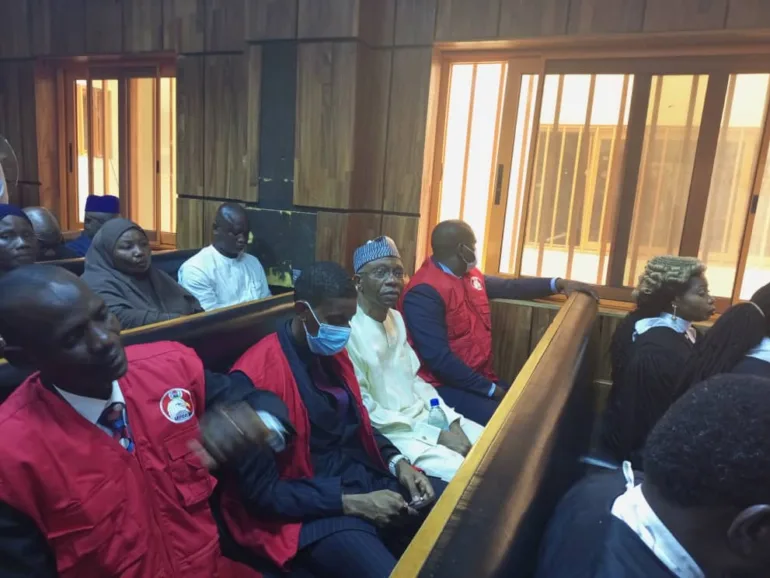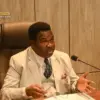Embattled former Central Bank of Nigeria (CBN) governor, Godwin Emefiele, has asked the Federal Capital Territory High Court in Abuja to prevent the Economic and Financial Crimes Commission (EFCC) from calling additional witnesses after 10 had already testified in his ongoing procurement fraud trial.
Emefiele’s lead counsel, Matthew Burkaa (SAN), argued that since the EFCC had initially listed only 10 witnesses in the proof of evidence filed with the court, it should not be permitted to introduce further witnesses.
However, EFCC prosecuting counsel, Rotimi Oyedepo (SAN), opposed the motion, stating that additional testimony was necessary for a full and fair presentation of the case. Oyedepo argued that blocking the agency from calling further witnesses would violate its right to a fair hearing.
After hearing arguments from both sides on Monday, Justice Hamza Muazu adjourned the case until March 20 to deliver a ruling.
Emefiele is facing 20 charges, including criminal breach of trust, forgery, and conspiracy, in the case marked FCT/HC/CR/577/2023. He is accused of using his position as CBN governor to grant unfair advantages to two companies, April 1616 Nigeria Ltd and Architekon Nigeria Ltd.
During Monday’s proceedings, the EFCC’s 10th witness, Salawu Gana, testified that the contract award to April 1616 for the procurement of vehicles for CBN complied with procurement laws and internal CBN guidelines.
While cross-examined by Emefiele’s lawyer, Gana explained that the CBN’s Procurement Department had evaluated bids and chose April 1616 for submitting the lowest quotation. He added that Emefiele had approved the contract based on recommendations from the CBN Tenders Board and confirmed that the vehicles were supplied and payments made according to those recommendations.
Gana, who was the Head of the Procurement Unit at the time, clarified that Emefiele was not a member of the Tenders Board and denied any involvement in the procurement process beyond his role. He also acknowledged that neither he nor the five procurement officers who recommended April 1616 for the award had been charged by the EFCC. Additionally, he confirmed that no evidence had been found showing any payments from April 1616’s bank account to Emefiele.
According to the company’s registration certificate, Gana testified, Emefiele was neither a director nor a shareholder, and he did not influence the procurement process.
EFCC counsel, Rotimi Oyedepo (SAN), introduced bundles of exhibits related to 45 vehicle supply contracts awarded to April 1616, RT Briscoe, and Globe Motors, reiterating that April 1616 was chosen for submitting the lowest bids.


